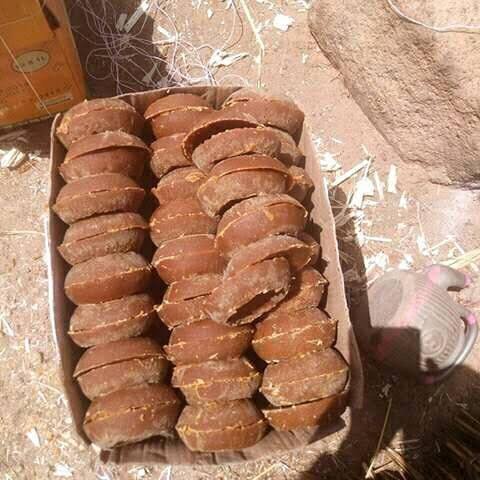By Abdullahi Yusuf
Many sugar consumers in Kano have resorted to using a locally produced brown sugar (Mazarkwaila), due to the high cost of granulated sugar in the market.
The price of granulated sugar has soared in recent days with a 50 kilogramme bag of the commodity selling for about N80,000, while a measure goes for about N5,000.
This, according to an investigation by our Correspondent, compelled the consumers to be using Mazarkwaila in such preparations as Gruel, Fura and Tea.
Mazarkwaila is made from sugarcane and is largely produced in Ikara, Makarfi and Soba Local Government Areas of the neighbouring Kaduna State, from where it is transported to Kano in large quantities for sale.
Our checks further revealed that the brown sugar gives virtually the same taste as the granulated sugar, although much healthier in effect.
Some of the users interviewed said they found Mazarkwaila much more affordable than granulated sugar, as it costs them between N250 and N400 per pack, as against about N5,000 paid for a measure of granulated sugar.
One of them, Adamu Mohammed, said he stopped using granulated sugar when he realized that he could no longer afford it.
“I spent about three months without putting sugar in my meals such as gruel or tea, until the alternative was discovered in Mazarkwaila which I now use to my taste,” Mohammed said.
Another consumer, Buhari Jazuli, decried what he called, “the prohibitive price of granulated sugar” in the market, which he said, compelled him to be using Mazarkwaila to put some sweetness in his meals.
“My only hope is that sellers of this brown sugar will not hike its price too, because I know that the attitude of the average Nigerian trader is to increase the price of his wares when he realizes an increase in their demand, especially now that the Ramadan fast is approaching,” Jazuli said.
A Tea Seller, Mamuda Salisu, said he had since stopped using granulated sugar in his tea and turned to brown sugar because of the soaring price of the chemically processed white sugar.
“I realised that I was no longer breaking even when I was using granulated sugar because of its high cost, and when I increased the price of my tea from N50 to N100 per cup, many of my customers ran away.
“But when I discovered Mazarkwaila and started using it, I reversed the price of my product to N50 per measure, and the customers are now returning, and the business is returning to normal,” Salisu said.
A hawker of the alternative sugar, Malam Isiyaku Garba, said he had been making brisk business since the consumers turned to the commodity, raking in about N15,000 every day.
“Before now, I was hawking sugarcane, but when I noticed the sudden preference of brown sugar to granulated sugar, I started buying and selling the brown sugar which I find more profitable,” Garba said.
He denied plans to increase the price of the commodity before or during the Ramadan fast, adding however, that, “if the market forces increase the price, there nothing I can do to help it, because I joined this business to make gains,” the hawker added.


